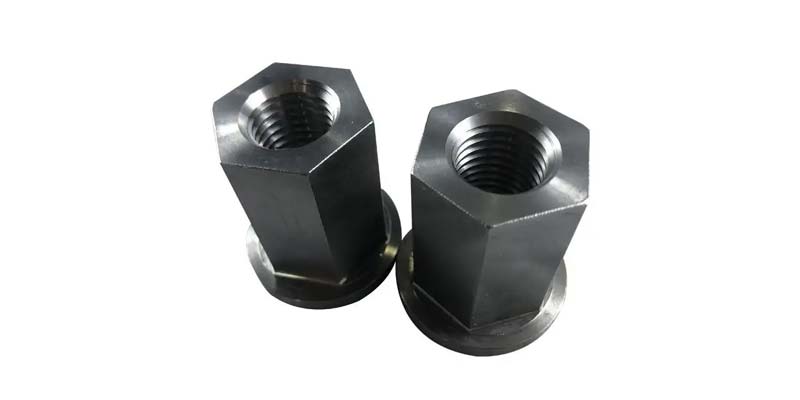- Contact Innally, Let you purchase forgings in China more favorable prices, products more assured!
- Hotline:+(86)15038323776 Email:innally@innally.com
The reason why titanium alloy forgings are favored in precision instrument manufacturing
- Category: Thermal forging, Titanium alloy forging
- |
- Date: 12/01/2024
In short, titanium alloy forgings are favored in precision instrument manufacturing because of their characteristics of high strength, low density, corrosion resistance, excellent high temperature performance, good processing performance and good biocompatibility.
Product Details
As a high-tech metal material, titanium alloy forgings are favored in precision instrument manufacturing. This is because titanium alloys have many excellent physical and chemical properties, which can meet the requirements of precision instruments with high precision, high stability and high durability.
First, titanium alloys have high strength and low density. This means that it can withstand larger loads and pressures while maintaining a smaller volume and mass. This is important for the manufacture of precision instruments that require high precision movement and positioning, such as parts used in optical instruments, precision machine tools and measuring equipment.
Secondly, titanium alloys have excellent corrosion resistance. It has good stability in most acids, bases, salts and other chemical media, and is not susceptible to corrosion and oxidation. This makes titanium alloy forgings ideal for the manufacture of precision instruments that require stable operation over long periods of time, such as applications in chemical analysis instruments, environmental monitoring instruments and medical diagnostic equipment. In addition, titanium alloys also have good high temperature properties. It can maintain stable mechanical properties at higher temperatures and is not prone to thermal deformation or creep. This is very advantageous for the manufacture of precision instruments that need to operate in high temperature environments, such as applications in devices such as lasers, infrared detectors and high temperature furnaces.

In addition, the processing properties of titanium alloys are also good. It can be cut, ground, polished and welded and other processing, and has good plasticity and toughness, not easy to fracture or deformation. This makes titanium forgings easier to process and manufacture in the manufacture of precision instruments, and can obtain higher accuracy and more stable performance.
Finally, titanium alloys also have good biocompatibility. This makes it also widely used in medical devices and biological experimental equipment, such as in the manufacture of artificial joints, dental implants and laboratory instruments.
In short, titanium alloy forgings are favored in precision instrument manufacturing because of their characteristics of high strength, low density, corrosion resistance, excellent high temperature performance, good processing performance and good biocompatibility. With the continuous progress of science and technology and the continuous improvement of precision instrument manufacturing requirements, the application prospect of titanium alloy forgings will be broader.
nannan
INNALLY mainly provides you with various types of cast and forged parts products. Welcome your inquiries! innally@innally.com
Related Products
Search
Forging center
- Steel forgings
- Aluminium alloy forging
- Titanium alloy forging
- Stainless steel forging
- Copper forging
- Automotive forgings
- Locomotive forging
- Bicycle forgings
- Motorcycle forging
- Rigging and fasteners
- Bearing forging
- Electric power fittings
- Marine forging
- Mechanical forgings for metalworking
- Mining machinery forgings
- Marine engineering forgings
- Construction machinery forgings
Popular product

© 2025. All Rights Reserved.






